Mike LeBourdais has been living in the country and riding horses all his life.
He’s the elected chief of Whispering Pines-Clinton Indian Band, a small rural community north of Kamloops, British Columbia.
The Trans Mountain pipeline runs through his community.
Built in 1953, he says there haven’t been any problems with it.
“We’re not afraid of pipelines or oil, we’re afraid of irresponsible resource extraction,” says LeBourdais.
(The Whispering Pines-Clinton Indian Band has had an oil pipeline running through the reserve for six decades. Photo: Laurie Hamelin/APTN)
The chief is part of the Western Indigenous Pipeline Group and they have their sights set on buying a stake in the Trans Mountain expansion project, a $4.5 billion project to twin the current pipeline that runs from Edmonton, Alta., to Burnaby, B.C.
And the outcome of Canada’s upcoming election is critical for a possible deal.
Trudeau and Scheer want the TMX pipeline to go through and the NDP and Green Party are against the expansion.
Read More:
B.C. chief says impacted communities should get first dibs on Trans Mountain Ownership
LeBourdais believes revenue from the pipeline will help give First Nation communities a brighter future.
“The pipeline is a piece of infrastructure that we want to acquire so we can have a better tomorrow,” says LeBourdais.
The problem is that extracting Alberta’s fossil fuels to send down the proposed pipeline will contribute to climate change – something many scientists warn is threatening our planet.
According to a poll commissioned by APTN News, First Nations feel the environment and climate change is the most important issue facing Canadians.
However, pipelines and natural resource development scored very low, and the chief says he’s not surprised because pipelines aren’t the problem.
“Pipelines don’t create climate change, actually they reduce it,” says LeBourdais. “When you’re trucking oil by rail or truck you are increasing CO2 emissions. However, First Nations understand that the environment is the important part so if you want to protect that you use oil pipelines rather than rail or truck.”
According to a 2016 study conducted by the University of Alberta, pipelines, overall, emit fewer greenhouse gases from construction and transportation phase than rail. The study, published in the Journal of Environmental Science and Technology, reported that “pipeline transportation produced 61 and 77 per cent few greenhouse gas emissions than rail.”
But opponents of the Trans Mountain expansion project say the threat of a spill into the territories of Nations across B.C. or Alberta, and into the waters off the coast is reason enough to shelve the project.
(People rally at a “Picnics not Pipelines” event in Kamloops, B.C. April 22, 2018. Lucy Scholey/APTN)
LeBourdais says he’s not against that, but wants it done properly.
“Mostly when you talk about resource extraction, what we want to see is responsible, environmental resource extraction.”
Many jobs in Northern B.C. and the Interior are resource based – very different from the people living in the Lower Mainland.
“There’s a huge disconnect,” says LeBourdais.
“They think that this is where the pollution comes from. No, no, the pollution comes from the Lower Mainland. You go down there and it’s consumption after consumption after consumption, and garbage truck after garbage truck.
“We’re the ones that are supplying the resources to keep the economy moving.”
LeBourdais is surprised that self governance and Indigenous Rights aren’t the number one issue for First Nations.
“When the Canadian economy rocks it’s pretty good on reserve, when it sucks it really sucks on reserve and so when it slows down like we are, the first things to go are the programs and those things on the reserve right,” he says. “The taxpayers money gets short and shrinks and we suffer the most and that is because of the Indian Act.
“We don’t have that jurisdiction over our own taxes and our own resources. And it’s not just me, you can go to any Indian Band in Canada, they’ll tell you the same dam thing, but in a different vernacular. And it’s always the same, it’s the Indian Act that holds us down so if we can start amending that, things will get better. It might take a generation or two, but things will get better.”
(Chief Michael LeBourdais with Olie the horse. Photo: Laurie Hamelin/APTN)
LeBourdais says problems with the Indian Act are the reason his community still doesn’t have safe water to drink.
“We have a funded water system from Indian Affairs, can we drink the water, no,” says LeBourdais.”
“We started out with a $3 million dollar water system, they cut it down to 1.2 or something like that and it doesn’t work. What we set out to achieve was defunded so much you couldn’t achieve it. They are well intentioned, but that is the road to hell, is well intentions. They do not achieve what they set out to achieve.
“What we want here is our jurisdiction back so that we can provide for our people as we have done for 10 thousand years.”



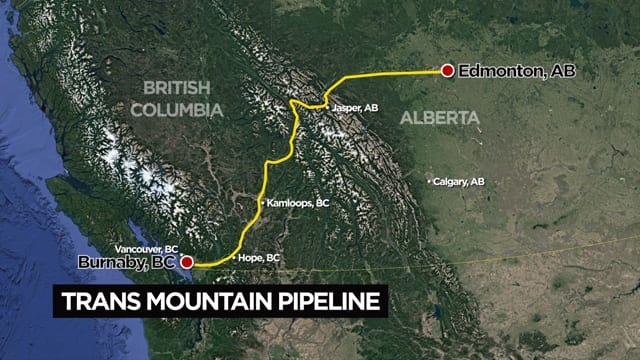

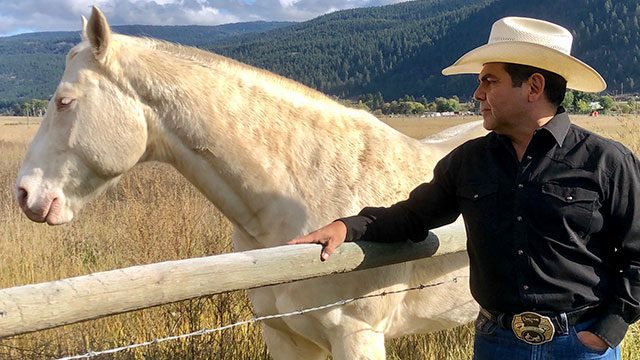



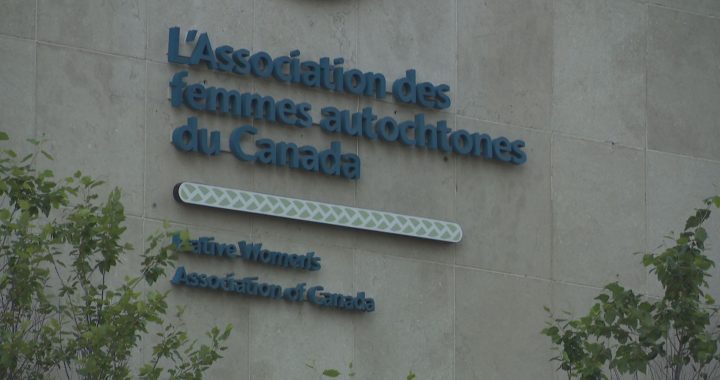
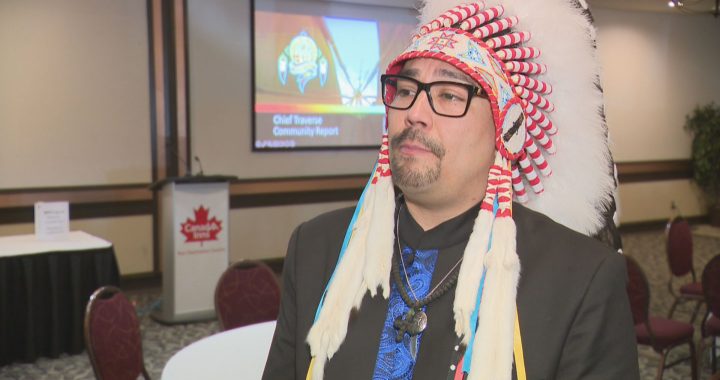
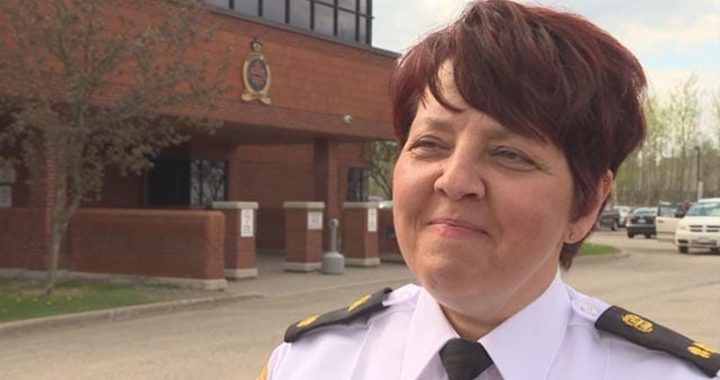
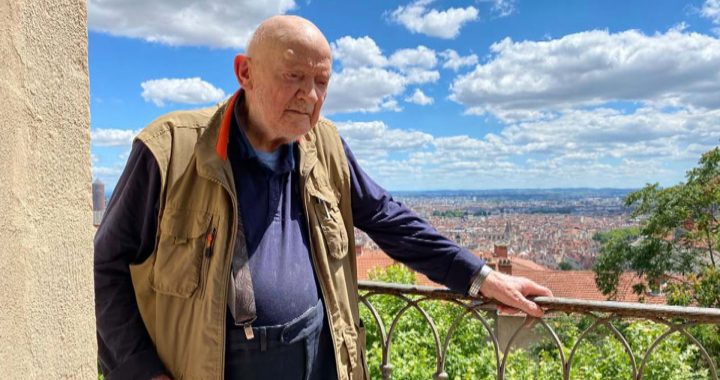
Charge the company the applicable laws they’re proposing to break and have already broken…with that money, pay the advocates from that community whom let those issues be known…and with that money implement the solutions…
“A pipeline burst, and someone is charged with an explosion causing bodily harm”…
“trains only derail when the rails are dirty”…we need a train-car that cleans the rails ahead of the fracked gas holding train…an advocate should collect solutions along with informations of the issues at hand….
Yes, the pipeline itself is obviously safer and more efficient. But the pipeline moves the dilbit to the coast and we still don’t know if it can be cleaned up if there’s an ocean spill. And yes, there is a huge disconnect but that goes both ways – people in Vancouver would say that we have a beautiful coast in BC and a spill would be a tremendous loss to those communities. Why do you think people are willing to pay so much to live there? Lastly, cities use resources much more efficiently per capita. I’m not even anti pipeline but the illogic from both sides is frustrating.
Sounds logical. Like bombing for peace. Or procreating for virginity.
mike sounds like a practical man. I wish him well.
My main opposition to the expansion of the TMX pipeline is that over its lifecycle the end product emits 16% more greenhouse gasses than standard crude oil as it must be heated to remove it from the ground.
Mike LeBourdais is blinded by his own self interest.
Irresponsible weak leadership. If all indigenous looked back in time resource extraction is why #genocide happened in the first place. Rez schools, sterilization, reserves, dispossession from our lands…etc all because colonial gov & corporations wanted our resources to extract. Now during a #climatecrisis where we need to act for our future generations those very same colonial gov & corporations are saying fossil fuels are our “saviors?” i dont think so. Gov lawyers and corporation consultants have infiltrated the federal band council system with their lies and for the most part the actual memberships, the actual people are left out of the process. Sad sad days. Our ancestors are rolling in their graves. They died for our rights now they are being sold cheap.